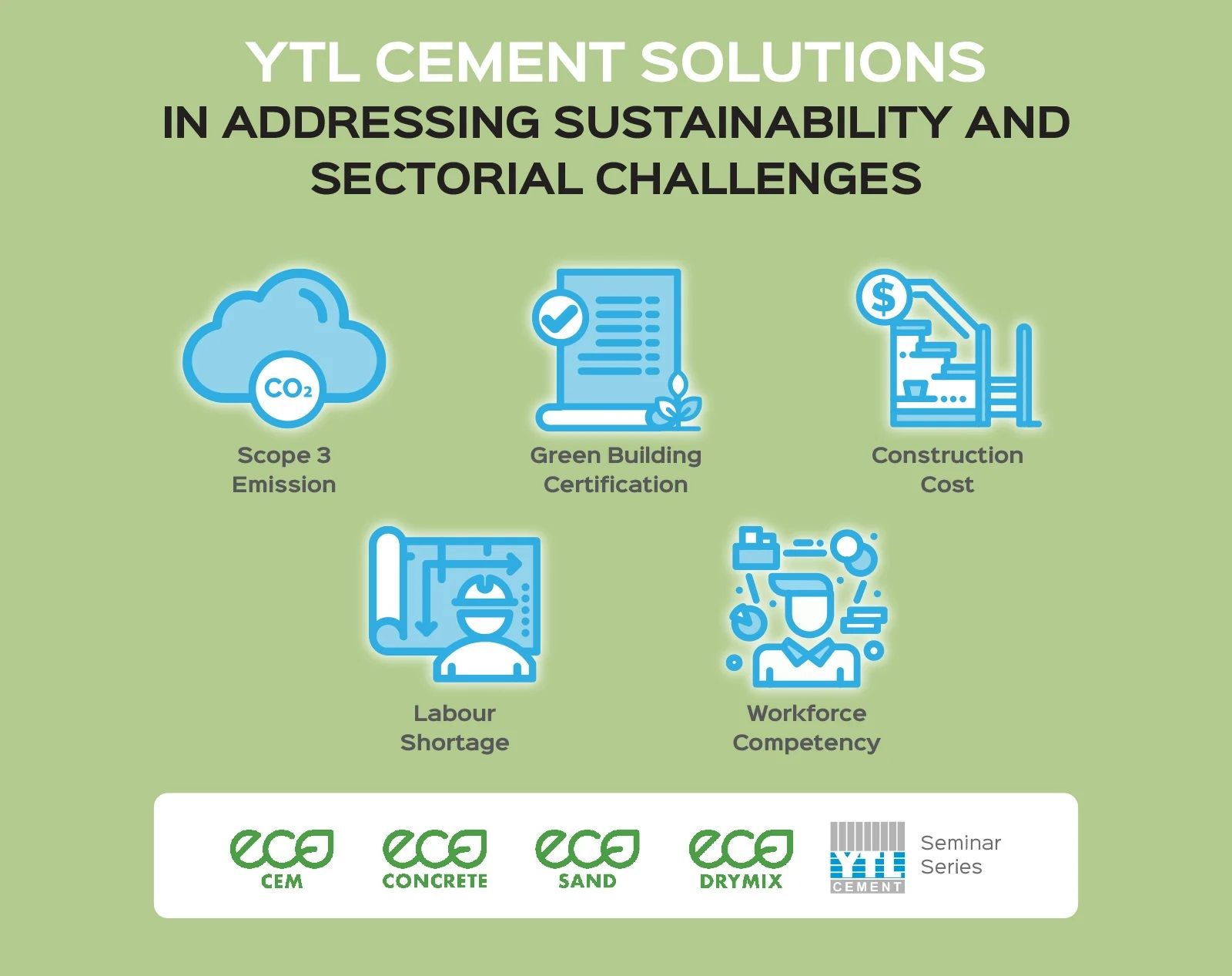Home
>Media Hub
>R&D Vital in Building Materials Innovation
R&D Vital in Building Materials Innovation
30 October 2023
While cement and concrete are fundamental building materials that have been in use from as far back as the 1800s, building materials specialist YTL Cement is constantly looking to innovate its products and itself to keep up with the increasing demand for sustainable construction practices.
YTL Cement believes that research and product development are essential in maintaining the right balance between cost, time, and sustainability. Thus, it has set up its Construction Development Lab, a research and development (R&D) centre with state-of-the-art facilities and expertise to meet industry needs.
Construction Development Lab Technical Director (Product), Ir Soo Thong Phor and General Manager, Lim Tze Liang talk about the evolution of cement and the industry over the past decades.
How have cement and concrete structures evolved over the years?
Soo: Cement’s earliest recorded use dates back 12,000 years, featuring cement-like variations and whitewashed floors crafted from limestone and clay. Historically, similar mortar was formed with volcanic ash, sticky rice, and lime to sustain the structures of ancient civilisations. We have come far since then, where cement and concrete have found diverse applications.
At present, the cement and concrete industry has evolved tremendously, from the construction of basic building structures to 118-storey skyscrapers. The quality, strength, and performance of cement, which is the basic binder that glues the sand and stones together, have also improved immensely. Likewise, the strength of concrete has evolved from a relatively low strength grade of 20.0MPa (megapascal) to over 100.0MPa.

How many types of cement are there, and what are their functions?
Soo: Essentially, there are six types of common cement in Malaysia, where their basic function is to bind the sand and stones together. However, depending on the strength required, the ease of application, and the size and type of structures, each type of cement is chosen according to the needs of the structures. To date, cement and concrete make up the essential building materials used for the construction of buildings and infrastructure. There is no perfect substitute for cement and concrete.
Cement is commonly distributed in two ways — by bag and bulk. Bag cements are sold in hardware stores to be used for smaller-scale production or general purposes. Meanwhile, bulk cement is specially blended and transported in silos via concrete trucks, suiting larger-scale projects or special construction requirements.
How has the cement manufacturing process evolved over the years?
Soo: The process of cement manufacturing has changed over time, from more conventional energy-intensive wet processes to the current more energy-efficient dry processes. This is mainly due to the strong emphasis on aspects such as energy efficiency, environmental sustainability, and the use of advanced technologies to reduce the industry’s impact on the environment.
Return to Media Hub
|
Search More Articles
About Us
Malayan Cement Berhad (MCB) is the Malaysian operations of YTL Cement Group and the country’s leading building materials company. As part of a regional Group committed to helping you build better, MCB provides an integrated suite of high-performance materials and sustainable environmental services that support construction of all scales – from homes to major infrastructure.
With a legacy that spans more than 70 years, MCB operates integrated cement plants in five locations, four grinding plants, three cement terminals, two depots and over 50 ready-mixed concrete batching plants two drymix plants, three aggregate quarries, and a dedicated R&D facility – the Construction Development Lab.
MCB offers a full range of building solutions, including cement, clinker, ready-mixed concrete, drymix, and quarry products, all designed to meet the evolving needs of the Malaysian market. The company also delivers sustainable innovations such as its ECO Product Range and offers environmental services.
With a fleet of over 1,500 trucks covering more than 120,000 kilometres daily, MCB ensures efficient and reliable delivery to customers across Peninsular Malaysia. Its scale, operational reach, and long-standing experience position it as a key partner in nation building.
MCB offers a full range of building solutions, including cement, clinker, ready-mixed concrete, drymix, and quarry products, all designed to meet the evolving needs of the Malaysian market. The company also delivers sustainable innovations such as its ECO Product Range and offers environmental services.
With a fleet of over 1,500 trucks covering more than 120,000 kilometres daily, MCB ensures efficient and reliable delivery to customers across Peninsular Malaysia. Its scale, operational reach, and long-standing experience position it as a key partner in nation building.
Copyright © 2026 Malayan Cement Berhad [195001000048(1877-T) | All rights reserved.
Aduan
